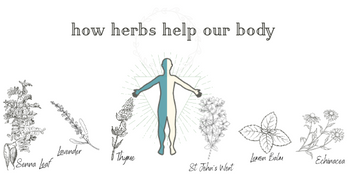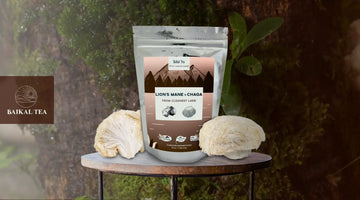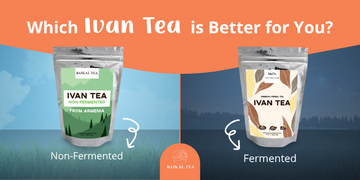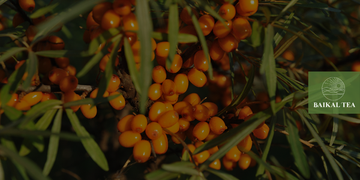First, herbs
Since prehistory, herbs, plants, roots, and fungi were the only type of medicinal drugs that were available to our ancestors.
They used these powerful herbs in the form of herbal teas, decoctions, and balms to treat illness and fever, infection, diseases, and many other conditions.
Then, drugs
The invention of modern medicine brought many conveniences, but it has caused us to forget about the healing power of plants.
In a world where there is a pill for everything, why would we bother seeking alternatives?
Thankfully, a new era of herbal medicine is emerging, and people all around the world are waking up to the fact that there are more natural ways to fight against illness.
With a little bit of digging, you can find simple and effective ways to improve your health and restore your organs. Let’s briefly discuss a few different areas of the body, and how they can benefit from different herbal remedies.
“Understanding the basics of herbs and how they work gives us confidence that if we or our family members gets sick, we can responsibly care for ourselves and our loved ones” ~The Herbal Apothecary
1. Heart
The heart (cardiovascular system) is where everything begins.
In classical Chinese medicine it is referred to as “the empress” which gives you an idea of how important it has been for centuries.
All of the body’s key processes are guided by the heart, as it distributes nutrients throughout our circulatory system.
In order to rule the domain of the body, “the empress" needs to be calm and steady.
But stress and negative emotions can cause irregularities in our heart’s rhythm. During times of stress, the heart rate becomes erratic and disordered, which can lead to heart problems if not properly managed.
Luckily, herbs and herbal tea can be used to reduce stress and heart palpitations. Some of the best herbs to promote a stable heart are Chamomile, Lemon Balm, Motherwort, Valerian root and Thyme.
2. Gut
We’ve all heard the saying “you are what you eat.” The food we consume can greatly affect our physical and emotional state.
Food affects our immune system, our mood, and pretty much everything about us! With the importance diet has, you would think people would take it more seriously.
Unfortunately, most meals are eaten mindlessly, whether it’s fast food on the road, snacks during a movie or takeout during work. Please be mindful of what you eat.
You can take an aperitif to jump-start your digestion before a meal, like a simple glass of lemon water.
If you feel heavy or bloated after a big meal, then our Teatox blend is a perfect Digestif/Carminative to help you ease your digestive system.
Chaga can also help you stay regular and bloat-free whether you take it before or after a meal.
3. Endocrine
The endocrine system is one of the most important, and most misunderstood of the body’s systems. This includes the organs in the body that are responsible for hormones.
Hormones transfer information and instructions from one set of cells to another, which is how our body communicates with itself.
Unfortunately, the stresses of our modern world have brought chaos to our endocrine system.
There are some herbs that can restore balance to the endocrine system. If taken properly, these herbs can harmonize the body and ease its symptoms.
Sleep is a good indicator of your internal balance. Insomnia is a symptom of disharmony in the body. A category of herbs called nervines may be just what your stressed out body needs!
Nervine herbs help to calm the body, mind, and spirit. They also heal damaged nerve endings, which are the result of chronic stress and anxiety.
Whether your mind is keeping you awake at night or you’re a light sleeper, nervines can help you wake up feeling refreshed and well rested.
A few examples of nervines to take are chamomile, lemon balm, lavender, St. John’s wort, and vervain.
Peppermint and Serenity are both amazing relaxing teas with nervine herbs in them.
4. Lungs
We don’t spend much time thinking about breathing, and yet we do it twelve to twenty times per minute.
Have you ever seen an infant breathe? Our natural state is to take in long, deep breaths of life-giving oxygen. As we age, we tend to use less and less of our lung potential to breathe, and our breath becomes shallower.
Shallow breathing can negatively affect cells, nerve functions, muscle action, circulation, digestion, and body’s long-term physical and emotional condition.
Returning your awareness to your breath can have dramatic positive effects on your overall well-being. It may seem simple, but the act of breathing can bring about transformative benefits.
You can also add lung-friendly herbs to your daily routine. Here are a few of the herb categories you should know about:

"Returning your awareness to the simple act of breathing will have dramatic positive effects on your overall well-being. Place both feet on the ground and rest your hands in your lap. Begin by observing your breath, in and out. Take a deep breath. Fill your abdomen, making it big and round. Slowly exhale. Do this five times. How do you feel now?"
Where Baikal Tea can help:
Baikal Tea is carefully crafted to restore balance to your body.
Chaga and Ivan Tea are good for stabilizing the entire body, with additional help.
Peppermint and Serenity are good blends for relaxing muscles throughout the body, including the heart.
Teatox is a special gut-healthy tea that removes bloating and constipation.

Relaxation
Peppermint and Serenity blends from Baikal Tea are formulated to improve heart and lungs, reduce stress and anxiety, and bring your body to a calm, resting state.
![]()
 Body restoration
Body restoration
Chaga is a potent antioxidant and immune support agent, which is good for entire body restoration and tummy health.
















